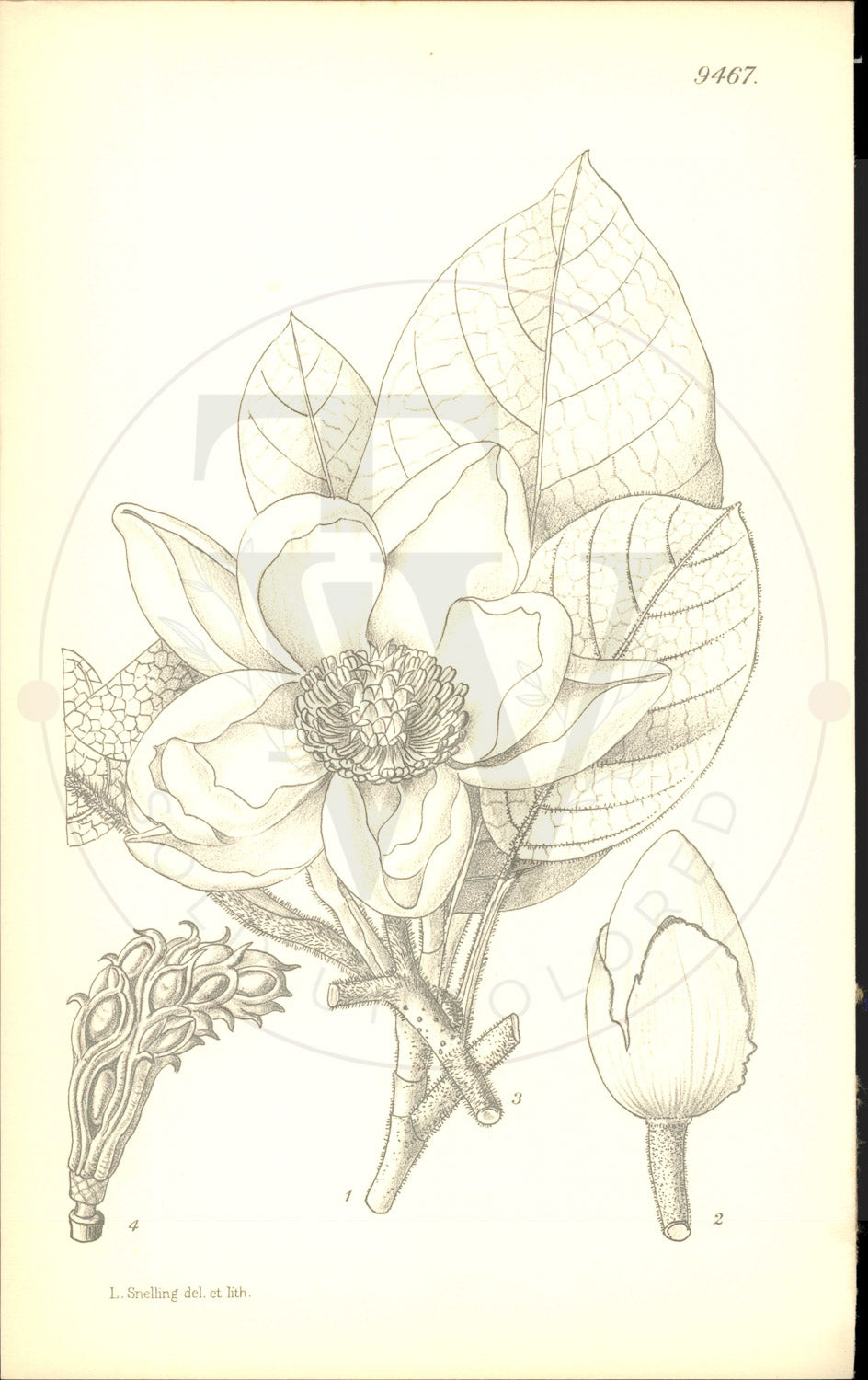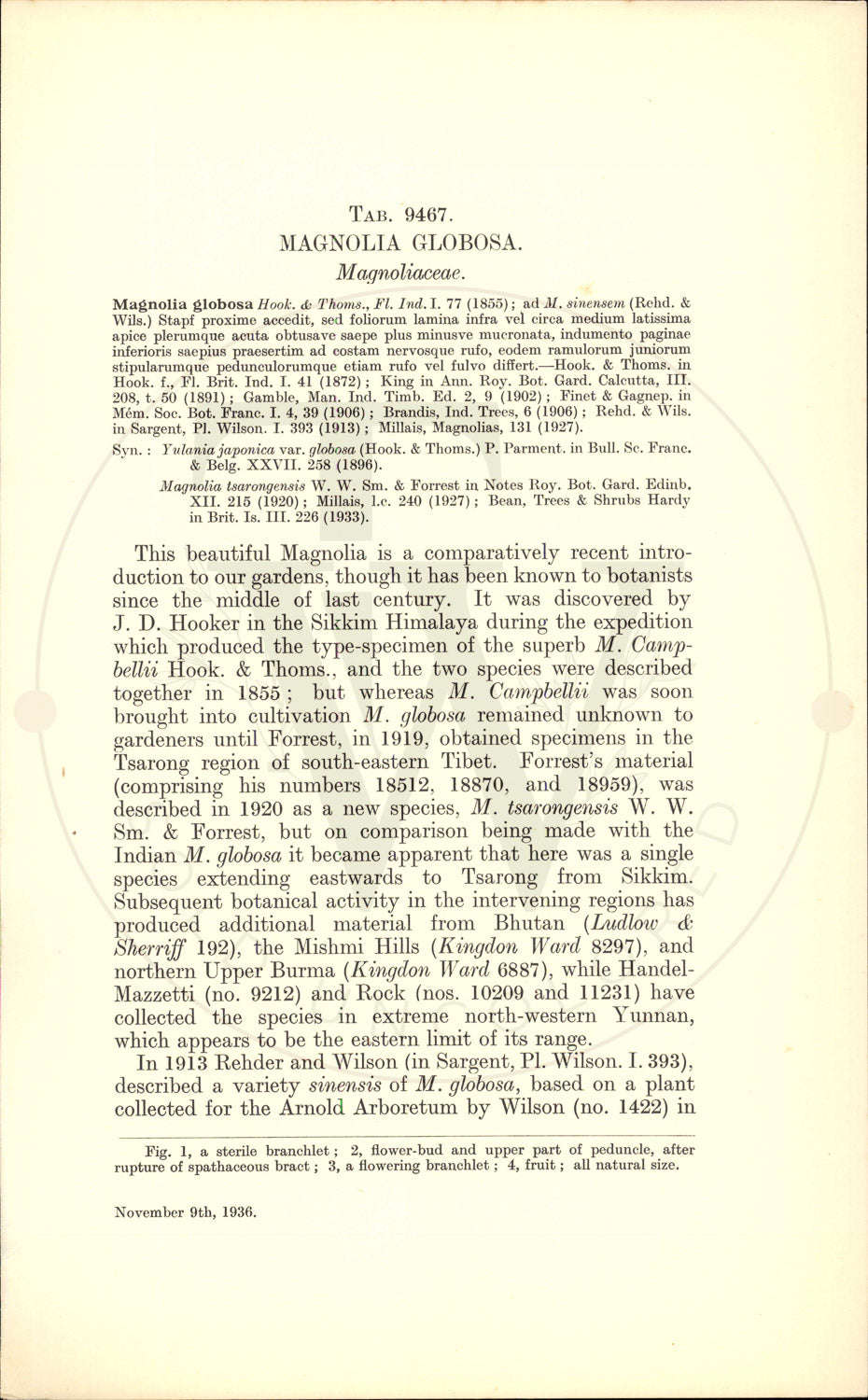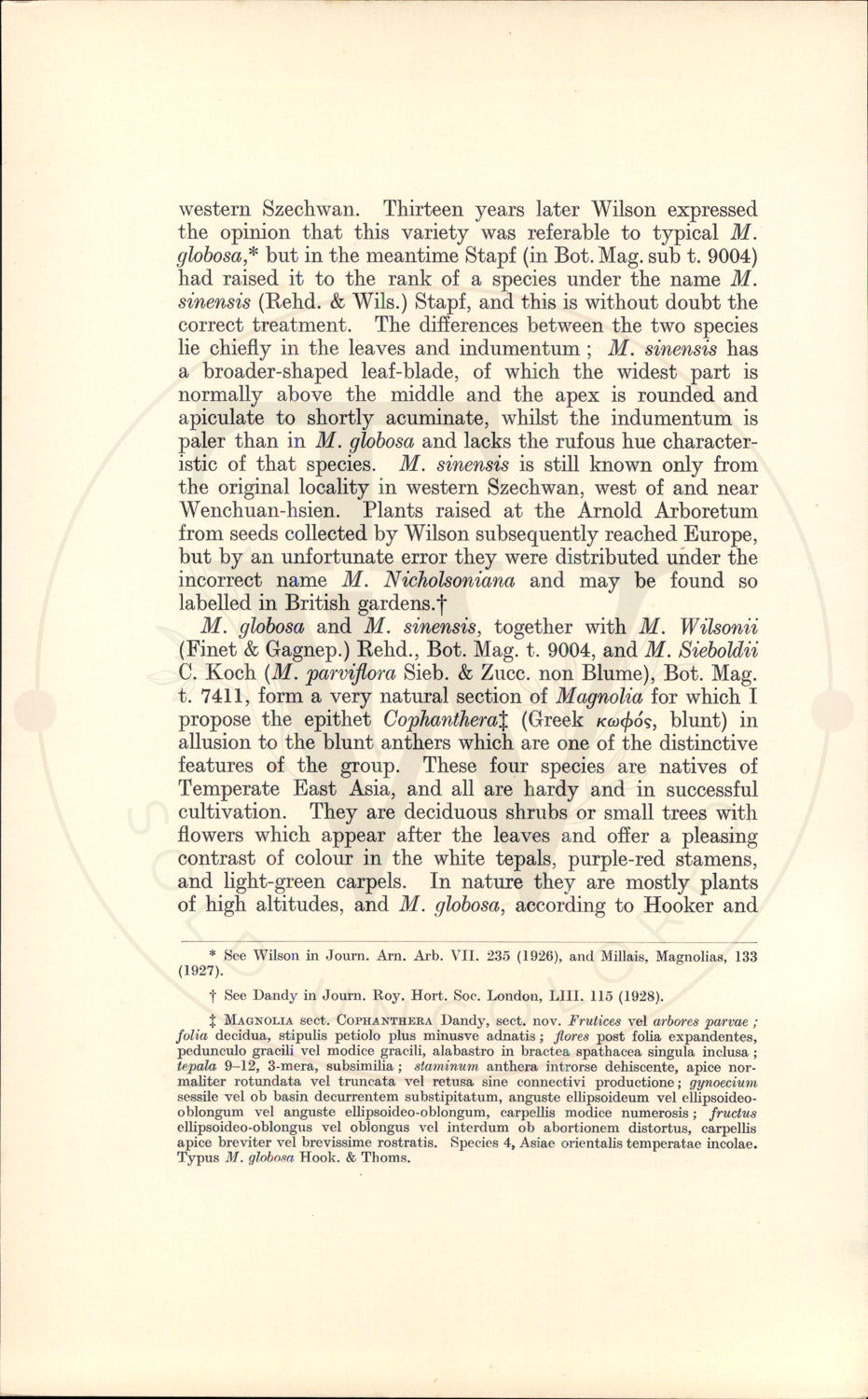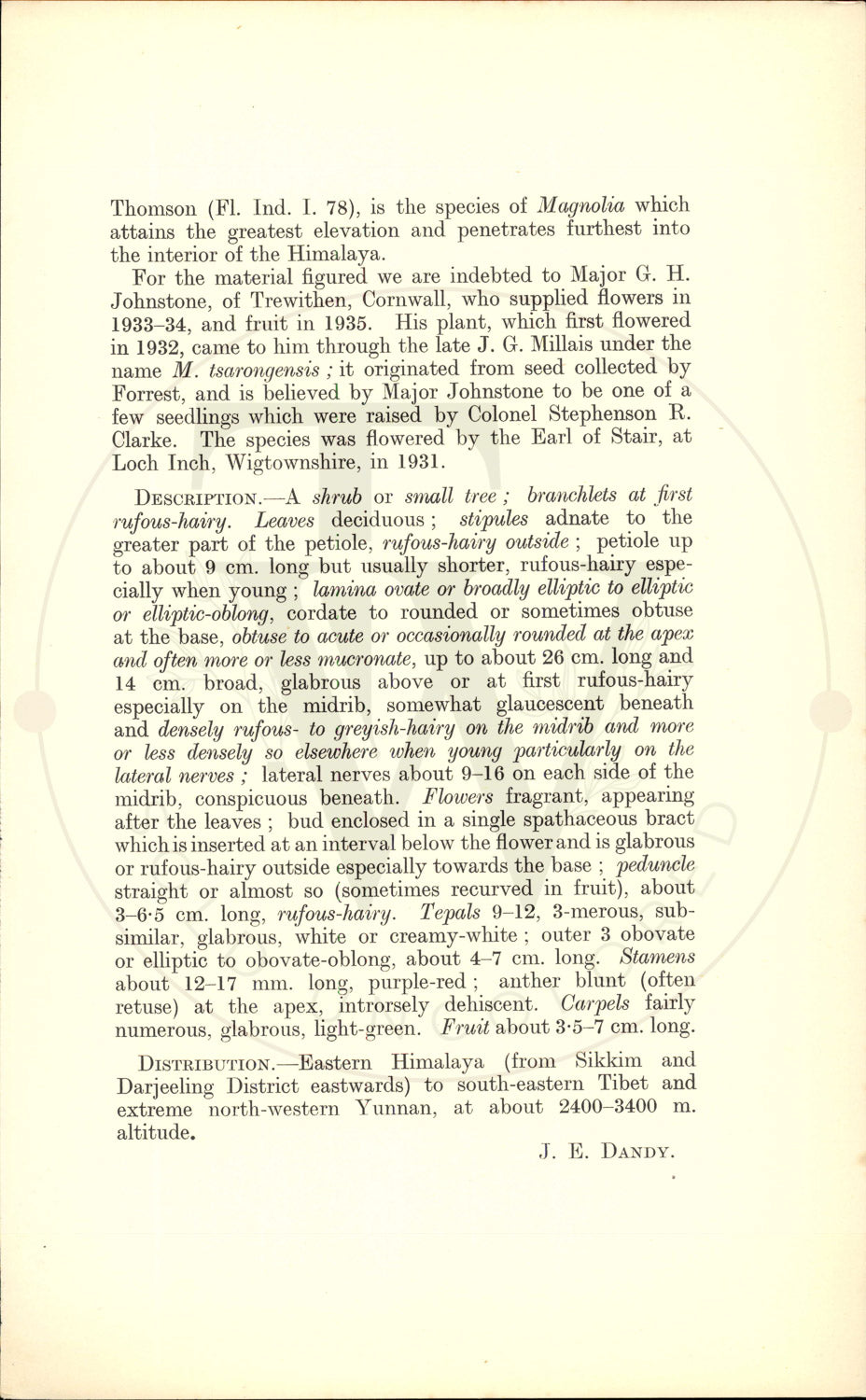Curtis Botanical Magazine
Plate 9467 - Magnolia globosa
Plate 9467 - Magnolia globosa
Couldn't load pickup availability
Curtis's Botanical Magazine - Plate 9467
Magnolia globosa
Native Region: India • Publication Date: January 1st, 1934
Distribution: -Eastern Himalaya (from Sikkim and • Tab Author: J. E. DANDY
Botanical Description
This beautiful Magnolia is a comparatively recent intro- duction to our gardens, though it has been known to botanists since the middle of last century. It was discovered by J. D. Hooker in the Sikkim Himalaya during the expedition which produced the type-specimen of the superb M. Camp- bellii Hook. & Thoms., and the two species were described together in 1855; but whereas M. Campbellii was soon brought into cultivation M. globosa remained unknown to gardeners until Forrest, in 1919, obtained specimens in the Tsarong region of south-eastern Tibet. Forrest's material (comprising his numbers 18512, 18870, and 18959), was described in 1920 as a new species, M. tsarongensis W. W. Sm. & Forrest, but on comparison being made with the Indian M. globosa it became apparent that here was a single species extending eastwards to Tsarong from Sikkim. Subsequent botanical activity in the intervening regions has produced additional material from Bhutan (Ludlow & Sherriff 192), the Mishmi Hills (Kingdon Ward 8297), and northern Upper Burma (Kingdon Ward 6887), while Handel- Mazzetti (no. 9212) and Rock (nos. 10209 and 11231) have collected the species in extreme north-western Yunnan, which appears to be the eastern limit of its range. In 1913 Rehder and Wilson (in Sargent, Pl. Wilson. I. 393), described a variety sinensis of M. globosa, based on a plant collected for the Arnold Arboretum by Wilson (no. 1422) in.
Synonyms
Yulania japonica var. globosa (Hook. & Thoms.) P. Parment. in Bull. Sc. Franc.
& Belg. XXVII. 258 (1896).
About This Print
Original black and white uncolored botanical print from Curtis's Botanical Magazine (established 1787). This 9000s series print is from unissued publisher stock, never hand-colored, representing the authentic plate as it appeared in the magazine. Edited by Sir Arthur William Hill for The Royal Horticultural Society, London.
Share









